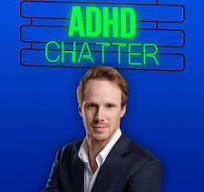Karen returns to ADHD Chatter Podcast with Alex Partridge

It was a real pleasure to recently join Alex Partridge once again on his insightful podcast, ADHD Chatter. As a neurodiversity couples therapist and coach with over two decades of experience, I’ve dedicated my career to understanding the unique dynamics within neurodivergent relationships. This latest conversation allowed us to delve into some crucial aspects that often present challenges, but also highlight the incredible strengths that can be nurtured.
I trained as a couple therapist, rather than an individual therapist because I really believe in the relationship and how we relate to others enriches our lives. By the time I did my first talk on neurodivergent relationships in 2014, I had a strong professional interest in this area and my work with neurodivergent couples has gone from strength to strength since.
When I first started working, not many people knew about ADHD or AS and how they affect our relationships. I find it hugely encouraging to see more awareness of this in the couples I see now, thanks to increased public awareness.
In that spirit, it’s so important to acknowledge that the way ADHD brains process information and emotions can significantly impact how individuals navigate intimacy, communication, and daily life within a partnership. We explored practical strategies for overcoming these hurdles, emphasising the power of open communication, mutual understanding, and tailored approaches that respect neurodivergent needs.
Some of the way ADHD presents in a relationship include:
- Mood dysregulation, exacerbated by RSD (Rejection Sensitivity Dysphoria)
- The way ADHD brains process experiences
- Assuming that the partner experiences things in the same way (even if the partner is also ND)
Rejection Sensitive Dysphoria
Rejection Sensitive Dysphoria (RSD) resonates particularly deeply with many. For individuals with ADHD, the fear of perceived rejection can be incredibly intense and can manifest in ways that inadvertently create distance in a relationship. We discussed how RSD can trigger defensive mechanisms, sometimes leading to misunderstandings and breakdowns in communication. Understanding the root of these reactions is the first step towards developing healthier coping mechanisms and fostering a more secure connection with a partner.
The importance of self-compassion
Navigating shame is another significant theme that often emerges in my work with neurodivergent couples. Societal expectations and past negative experiences can lead to feelings of inadequacy or being “different,” which can cast a shadow over the relationship. Our conversation highlighted the importance of self-compassion and partner acceptance in dismantling shame and building a foundation of trust and vulnerability.
Ongoing spark
Of course, maintaining excitement and connection over the long term is something every couple strives for. We explored how the unique energy and perspectives of neurodivergent individuals can actually be a source of ongoing spark and novelty in a relationship. That is providing both partners are willing to embrace neurodiversity and find creative ways to keep the connection alive.
Make or break
The question of whether a child can “cure the boredom” made for an interesting discussion. It’s important to recognise that nurturing the core relationship is the most sustainable solution, rather than relying on external factors. We discussed some of the key lessons learned from successful neurodivergent relationships, emphasising the importance of empathy, patience, and a willingness to learn and adapt.
It’s also crucial to acknowledge that not all relationships are destined to last. Sometimes, fundamental differences or a lack of understanding can make it incredibly challenging for a couple to thrive. While my work focuses on helping couples build stronger connections, it’s also important to recognise when parting ways might be the healthiest path for both individuals.
Emotional distance
A particularly important part of our conversation addressed the frustrating and invalidating experience of having a partner who doesn’t believe ADHD is real. This lack of understanding can create significant emotional distance and make it incredibly difficult to navigate the challenges within the relationship. We discussed strategies for communication and education, while also acknowledging the emotional toll this can take on the partner with ADHD.
Celebrating the positives
Neurodiversity brings both challenges and incredible strengths and unique perspectives to a relationship. We dedicated time to celebrating the positives of ADHD, such as creativity, passion, and a different way of seeing the world. Recognising and appreciating these strengths can significantly enhance the dynamic between partners.
Finally, we touched upon the concept of “unity” in couple therapy, emphasising the importance of working together as a team, understanding each other’s perspectives, and building a shared vision for the relationship. The “ADHD agony aunt section” provided an opportunity to address specific listener questions and offer practical advice in real-time.
ADHD Chatter was a wonderful opportunity to share insights and hopefully offer some guidance and encouragement to neurodivergent individuals and their partners. You can view the full episode on YouTube or listen to the audio wherever you get your podcasts.



